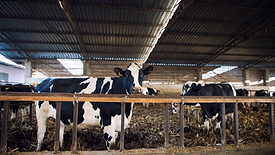Regulatory
Fundamental Requirements of the 3-A Sanitary Standards and their Relationship with Regulations
Although the 3-A Standards are not regulations, many regulatory authorities treat them as such to permit the use of equipment for food or dairy processing
December 19, 2024
Regulatory Changes Impacting Your Food Safety Program, Part 1—What Should FDA's Priorities Be?
We asked for your opinions on FDA's Human Foods Program and the food regulatory structure in the U.S.—and you answered
December 19, 2024
Never miss the latest news and trends driving the food safety industry
eNewsletter | Website | eMagazine
JOIN TODAY!Copyright ©2025. All Rights Reserved BNP Media.
Design, CMS, Hosting & Web Development :: ePublishing












